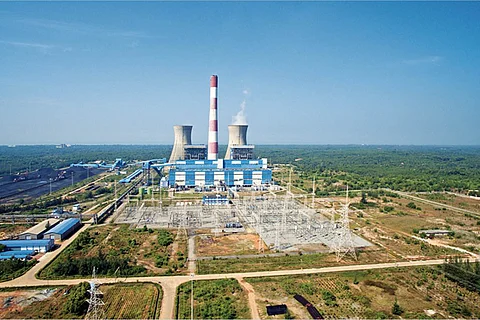

The Udupi Power Corporation Limited (UPCL) thermal plant in Udupi, owned by Adani Group, has been ordered to pay compensation of Rs 52.02 crores for the damage caused to the environment and the health of residents in the villages in Udupi of Karnataka, where the thermal power plant is located. A bench headed by Justice K Ramakrishnan pronounced the judgment on May 31, while hearing a batch of petitions by Janajagriti Samithi, and others against the setting up of a thermal power plant in the Yellur and Nandikur villages.
According to reports, the issue dates back to the 1990s. In November 1995, the Karnataka government had approved a proposal by Nagarjuna Fertiliser and Chemical Limited (NFCL) to set up a two-million tonne per annum steel plant with a 1,000 MW captive power generation. This power plant was later allowed to be shifted to Yellur, Santhur, Padebetu and Thenka villages, but there were no environmental clearances or clear details as to where the plant would be shifted to.
The Udupi Power Corporation Limited plant was built in 2003-2004, after the Karnataka State Pollution Control Board (KSPCB) granted clearance based on a Regional Environment Impact Assessment (REIA) for the site. The project’s engineering, procurement and construction (EPC) contract was handled by Lanco Infratech Limited (LITL), and Udupi Power Corporation Limited (UPCL) was the one which handled site clearance and other statutory clearances. In 2015, Adani Power acquired 100% shares of UPCL from Lanco Infratech Limited.
Meanwhile, the Union Ministry of Environment, Forest and Climate Change (MoEFCC) had granted environmental clearance to UPCL allowing them to add ‘800 x 2 MW imported coal-based thermal power plant’. When Adani got clearance to expand the UPCL plant capacity by 1400 MW, Janajagriti Samiti had filed a petition at the National Green Tribunal (NGT).
In its plea, the Janajagriti Samithi also said that Yellur village was not part of the project at all.
In 2019, the Principal Bench of the National Green Tribunal transferred the applications alleging the plant is violating environmental norms to the southern bench. While passing the order, the court had observed that the plant violated environmental norms, and that “environmental clearance dated 20.03.1997 had been granted without following the due process statutorily prescribed and mandatorily required to be followed.” However, considering that the plant was already running and the ‘fait accompli situation’, the court did not order the removal of the plant but had ordered UPCL to pay a compensation of Rs 5 crores invoking the ‘polluter pays’ principle. The court also cancelled any further expansion of the plant.
The NGT bench has now ordered UPCL to pay Rs 52,02,50,000 for the damage caused to the environment and the impact on the health of residents in the areas where the plant is located. The court noted that Rs 5 crores have already been paid, and the balance amount is to be paid to the Central Pollution Control Board (CPCB) within a period of three months.
The compensation funds received from UPCL are to be utilised to form a scheme “for providing necessary environmental infrastructure improvement (water supply, sewage, STP, Solid Waste Management, Health facility and Skill development programs) in this area,” with 50% of the compensation.
The court further appointed a joint committee to conduct a detailed study regarding the impact of UPCL activities on the nearby agricultural lands that lie within a 10-kilometre radius of the plant. The court has also said that if the committee identifies any loss in the agricultural land due to UPCL, “then they are directed to assess the compensation and recover the amount from M/s. UPCL and disburse the same to the affected farmers in proportion to the loss sustained by them”. A UPCL representative is also permitted to participate when the enquiry is being conducted by the Committee.
The committee will comprise of three members: District Magistrate/Deputy Commissioner of Udupi District or his nominee not below the rank of Assistant Collector/Sub Divisional Magistrate; Director of Agriculture and Horticulture or his nominee not below the rank of Deputy Director of Agriculture and Horticulture; and a Senior Scientist from the Integrated Regional Office, CPCB, Bengaluru. The Committee is also to act as the “Grievance Redressal Committee” in the area.
Further, both the CPCB and Karnataka SPCB are directed to conduct regular and periodic monitoring of the UPCL activities “in respect of maintaining pollution control mechanism to arrest the air, soil and water pollution”. They are also to keep an eye on the efficiency of the mechanism “provided to control the stack emission and dust emissions due to handling of coal and fly ash generated”, and are to take legal action if any deficiency is identified. This includes the imposition of compensation and taking other remedial measures.